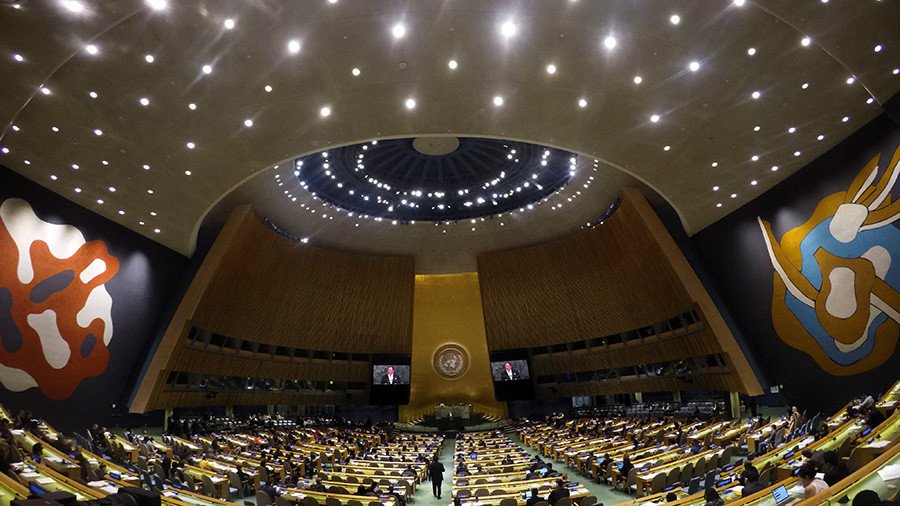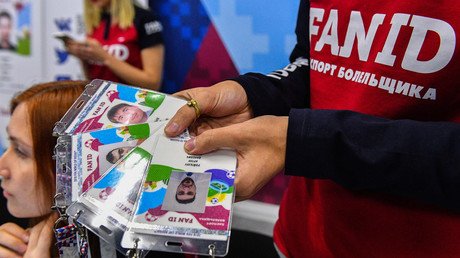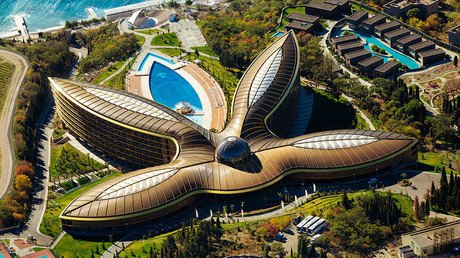76 UN members abstain & 26 vote against as Crimea human rights resolution passes

A Kiev-sponsored UN resolution condemning the human-rights situation in Crimea and the city of Sevastopol failed to convince much of the UN General Assembly, as 76 countries abstained, 26 opposed, and 70 supported the motion.
Among those who voted against the resolution were Russia, China, India, Iran, Serbia, and Belarus; while the US and its allies approved. In all, countries representing nearly half the world’s population rejected the document.
The resolution called on Russia, described as an “occupying power,” to “take all necessary measures to immediately put an end to all violations and infringements of human rights against the inhabitants of the Crimea.” It also called on the country to rescind the “illegal establishment of laws, jurisdiction and management by the Russian Federation” in Crimea, and to provide “accessibility of education in the Ukrainian and Crimean Tatar languages.” In addition, it requires Russia to annul its recognition of the Mejlis of the Crimean Tatar People as an extremist organization.
🔴ВАЖЛИВО: Генасамблея ООН ухвалила 🇺🇦 резолюцію щодо ситуації з правами людини в тимчасово окупованих АР Крим і м.Севастополь (Україна), внесену за ініціативи Президента П.О.Порошенка і підтриману 40+ співавторами. ✅За – 70 ⛔️Проти – 26 #️⃣Утрималися – 76 pic.twitter.com/5O3L018kQg
— UKR Mission to UN (@UKRinUN) December 19, 2017
Deputy Permanent Representative of Russia to the UN Yevgeny Zagainov said before the vote that the resolution was meant to divert attention from Ukraine’s violations of human rights with “torture, enforced disappearances, arbitrary detentions, discrimination, political persecution, violations of freedom of expression,” and the impunity for those responsible for burning dozens of anti-government activists in Odessa in May 2014.
READ MORE: Overwhelming majority in Crimea today would still vote to join Russia – German survey
Zagainov said that the Ukrainian delegation and its patrons do not care about human rights in the Russian region or its inhabitants wishes, but rather aims to challenge the status of Crimea and distort realities on the ground through human rights rhetoric. He noted past actions by the Mejlis in Crimea in relation to organized provocations, blockages and attempts to increase inter-ethnic tensions.
With this resolution, they “encourage these very dangerous fantasies, creating the ground for Kiev’s provocations and enterprises and thus sharing responsibility for them,” warned Zagainov.
Проект резолюции #ГАООН по Крыму - наглядный пример злоупотребления тематикой прав человека. @UKRinUN и их покровители думают не о правах жителей этого региона России, а о том, как бы оспорить его статус под прикрытием правозащитной риторики https://t.co/mz3VGvf98xpic.twitter.com/59SpXzW5Md
— Russian Mission UN (@RussiaUN) December 20, 2017
He said that Kiev had passed a controversial new law in September that “deprives hundreds of thousands of children of the opportunity to receive education in their native language.” Various European countries, such as Hungary, Romania, Bulgaria, Poland had complained in the OSCE about this language law and the rights of minorities in Ukraine. Zagainov’s concerns about Ukraine’s human rights problems have been confirmed in the reports of the UN mission deployed in Ukraine to monitor the human rights situation.
READ MORE: Crimean activists demand Ukrainian nationalist groups’ recognition as neo-Nazis
Following the coup in Ukraine, the rise of radical nationalist groups, and the worsening situation in Donbass, the population and authorities of Crimea feared a crackdown on the Russian people and language. They expressed their desire to rejoin Russia in a referendum that took place on March 18, 2014, when more than 80 percent of eligible voters participated. Some 96.7 percent voted for reunification in Crimea, including 95.6 percent in the city of Sevastopol. The same day, Russian President Vladimir Putin signed a decree allowing the Republic of Crimea and Sevastopol to join the Russian Federation.














